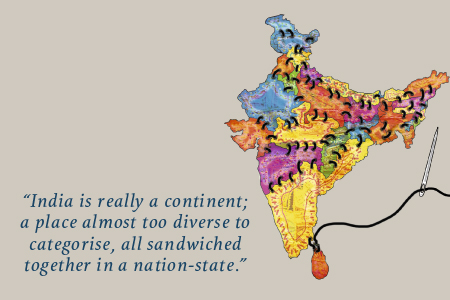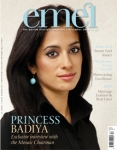
The Journey of Small Things
Issue 75 December 2010
Every democracy enshrines free speech in its constitution, but the reality is different.
What does a novelist cowering in her home after uttering a few sentences and a book withdrawn after politically-motivated protests have in common? They are both stories of modern India as it struggles with questions over the limits of free speech, and how it remembers its own past.
Start with the novelist, Arundhati Roy, the Indian writer who won the Booker prize in 1997 for her novel ‘The God of Small Things’. Last month Roy, speaking at an event on the disputed territory of Kashmir, argued, “Kashmir has never been an integral part of India. It is a historical fact. Even the Indian government has accepted this.”
Roy has made statements like this before but has never provoked such a fierce reaction. There were suggestions she would be arrested and tried for sedition. The right-wing BJP, the second largest party in India’s parliament, seemed to suggest she ought to be hanged. A mob surrounded her house in Delhi chanting that she should retract her statement or leave the country.
Gradually the rhetoric was toned down and the government backed away from arresting Roy. But the incident showed how raw emotions are in India over Kashmir, which both Pakistan and India claim as their own. For her part, Roy outlined her views in a short, pithy statement: “Pity the nation that has to silence its writers for speaking their minds.”
A couple of weeks before Roy made her controversial statement, another Indian writer, the Canadian-Indian Rohinton Mistry, was informed that Mumbai University was removing his 1991 novel ‘Such A Long Journey’ from its English literature syllabus. The reason, ostensibly, was that it contained ‘offensive’ passages.
In fact the book had been the subject of a campaign by the political party Shiv Sena, a controversial organisation that campaigns for the rights of indigenous Mumbai residents. Shiv Sena felt that the portrayal of its founder in the book was offensive and the campaign was spear-headed by the twenty-year old grandson of the founder, himself now a student at Mumbai University.
What astonished Mumbai’s liberal elite was how quickly the university caved in – the book was removed from the syllabus without protest and without due process. The vice-chancellor even went so far as to outline his views on the constitution, saying, “Our constitution guarantees complete freedom of expression to every citizen of India but with a qualifying clause of enjoying it without hurting the sentiments of any section of society.”
One can read those two incidents – as many liberal Indians have – as part of a trend, of excessive interference by political parties in public life. Roy herself argued as much, saying, “Pity the nation that needs to jail those who ask for justice while communal killers, mass murderers, corporate scamsters, looters, rapists, and those who prey on the poorest of the poor, roam free.”
Politicians respond that they are simply being cautious, in a country where speech can quickly escalate into violence.
But the two incidents are also part of a different story of modern India, of political attempts to impose a standard narrative on a fractious and too diverse nation.
People talk of India as a country but it is really a continent, a place almost too diverse to categorise. India is a collection of regions, some developing, some developed, all sandwiched together in a nation-state. Its history is even more tangled, a collection of myths, histories and faiths, over-layed by invasions and occupations.
Faced with this background, some of India’s leaders want to knit that plurality of views into a cohesive whole – usually for their own ends. This is what happened with the Roy and Mistry incidents. The politicians who were quick to jump in were trying to impose a narrative on the country, to police the limits of what can and cannot be said.
That is part of the battle for modern India – to decide how things are described, how the past is remembered. All the complexities of the country, its dynasties and monuments, its political and social history, ought to be weaved into one whole. But in a country as large and diverse as India, forcing those knots out of the narrative cannot be done without casualties.
Faisal al Yafai is a journalist. You can follow him at twitter.com/faisalalyafai
To read more of Faisal's comment peices, go here.
Bookmark this |
|
Add to DIGG |
|
Add to del.icio.us |
|
Stumble this |
|
Share on Facebook |
|
Share this |
|
Send to a Friend |
|
Link to this |
|
Printer Friendly |
|
Print in plain text |
|


Comments
0 Comments